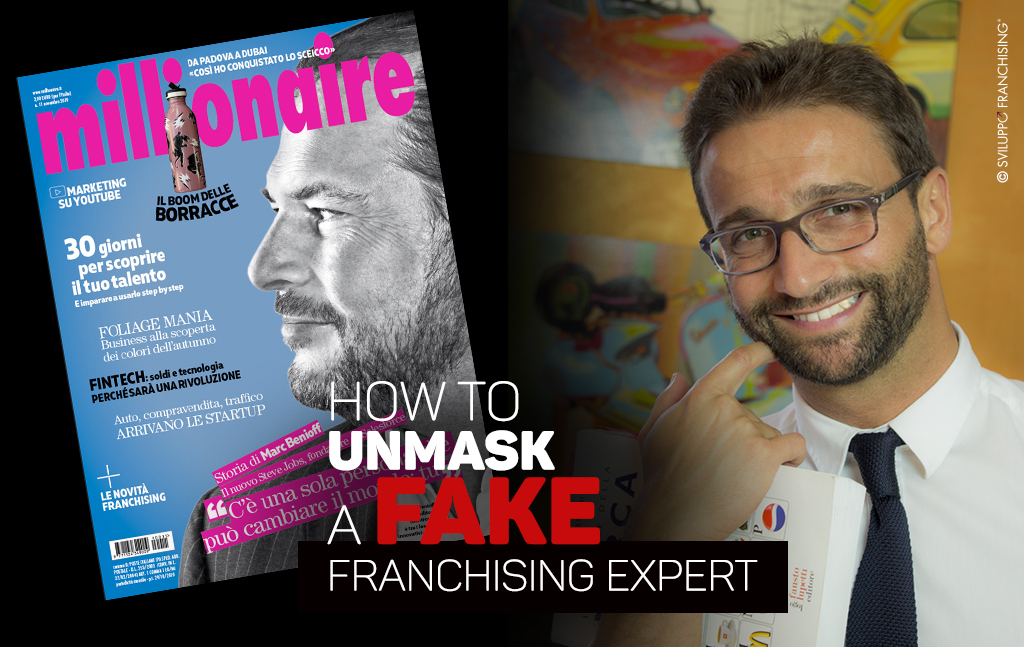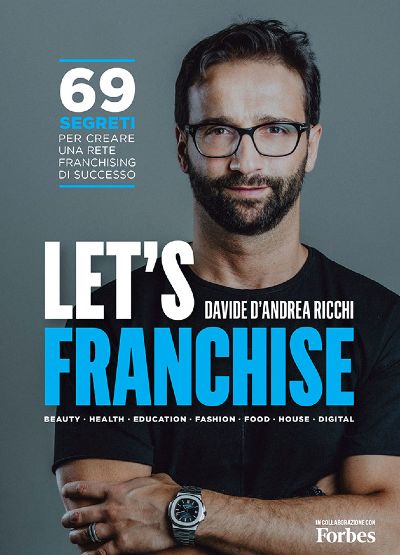
How to recognize a Fake Franchising Expert
The role of franchising expert is becoming increasingly sought after, given the growth trend of the sector in Italy and the international numbers. In this sunny climate, pseudo-consultants and/or generalist professionals try to carve out a place for themselves by taking a speculative approach to the market and boasting skills to embark on development paths through the franchise formula.
Especially in recent years, we have witnessed the proliferation on the web and social media, not only of pseudo-expert emulators, but also of random trainers, masters, and mistresses of franchising. This is because, in my opinion, attempts have been made to respond to two types of market needs: on one hand, the need to know more and more about franchising and its potential, and on the other hand, the desire of some “professionals” to attract clients interested in this development formula at all costs.
This type of plague has been observed by us because more and more often, businesses/startups turn to us to pick up the pieces of a poorly executed franchising project.
At this point, it seems appropriate, in defence of all those who want to invest in franchising as franchisors or franchisees, to provide advice on how to recognize a true consultant and franchising expert.
How to Recognize a True Franchising Expert?
1. Evaluate the client portfolio.
Whether we are looking for a franchising expert or whether one of them contacts us (which is absolutely legitimate and should not diminish their potential professionalism), the first thing to do is to check their references. How? First of all, check if there is a website for their consulting firm (or at least a personal website) – if there isn’t, start to be on alert. Check their client portfolio. The quantity and quality of clients are indicators of the real value of their professionalism. If this “franchising consultant” has few and unknown clients … Well … I would go elsewhere. For my birthday dinner, I would certainly never choose a restaurant that is poorly and rarely frequented.
Beware of those who claim to have few clients because they select them and/or because they want to dedicate more time to them. Hypocrisy. In reality, it is the clients who have selected and rejected them.
2. Evaluate their financial results.
Unless it is an individual franchising consultant, i.e., a freelancer (which in itself means they have little work and do not have a structure capable of providing adequate services to a client), there should be a balance sheet deposited for their company. I suggest conducting a reconnaissance of the company and evaluating its turnover for at least the last two years. If this person were truly a franchising expert or the owner of a franchising consulting company, they should have recorded significant revenue, precisely having an economic recognition from the market in which they operate. Numbers never lie. There are also companies that boast over a decade of experience in the sector. However, it is a pity that they do not emphasize that their financial results are slightly above 100,000 euros and with profits close to zero. Well … All this experience has served little. P.s.: Personally, I would not follow someone who hasn’t made money to make it.
3. Evaluate the curriculum.
Another verification that can be carried out to understand the caliber of our consultant concerns their curriculum. Today, it seems sufficient to be able to attend anonymous classrooms to feel like an expert. Always be wary of those who claim to be experts without having had successful work experiences and/or adequate educational qualifications. Furthermore, considering that franchising consultancy is a multidisciplinary subject, it is necessary to have at least basic transversal skills (legal, economic, marketing, and organizational) to fully understand all the dynamics.
4. Evaluate Recognitions and Collaborations.
Last but not least, an element to evaluate how expert our franchising consultant is represented by external recognitions and collaborations (partnerships) at national and international levels by third-party independent subjects. Trade associations, foundations, business groups, sector-specific newspapers may have given recognitions to our expert for their work (both in terms of time and quality), which certify their value, as well as teaching positions at universities, publications, and appearances in independent media. Even collaborations (past and present) with renowned and valuable entities confirm the quality of a consultant: collaborating with universities and business schools can certainly be an additional attestation of esteem from independent subjects.
These are the main four points to keep in mind when evaluating your franchising expert. If all four points show positive evidence, then we are dealing with a true expert. Hegel said, “nothing is deeper than what appears on the surface.” So, keep an eye on the surface because it’s not that hard to understand.





